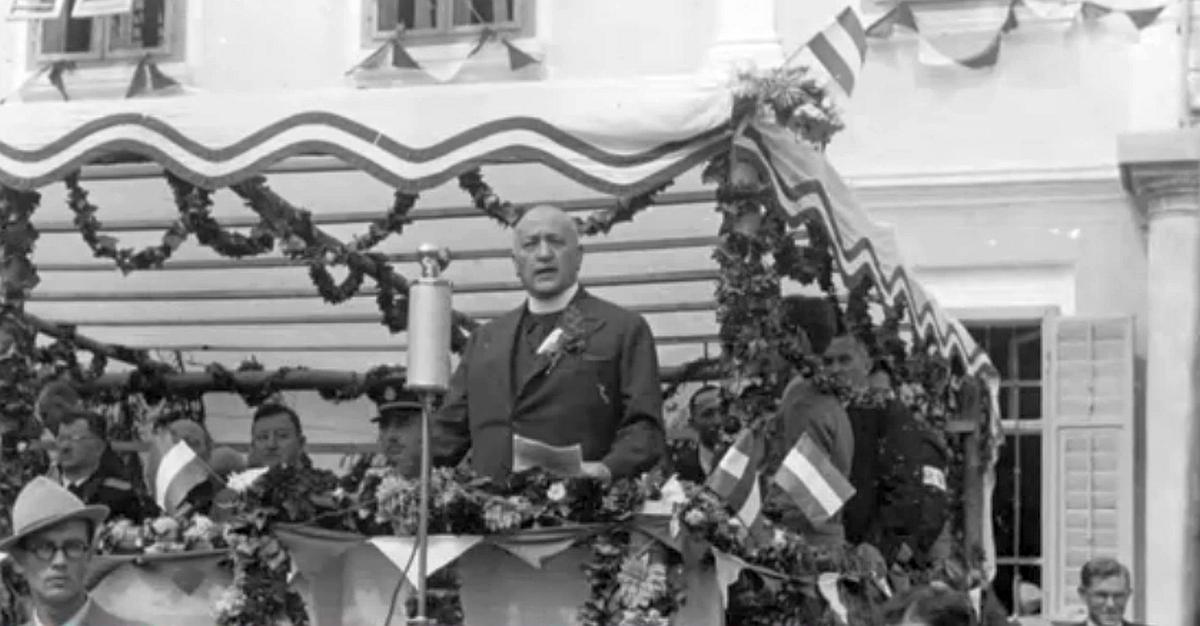
Anton Korošec, a priest-turned-politician, was one of the key people behind the Slovenian people’s struggle for autonomy in the 20th century and the creation of a South Slav state that would eventually become known as Yugoslavia. Later in life, however, his profound conservativism made him increasingly out of touch as cataclysmic political events began to reshape Europe.
Korošec was born in what is now eastern Slovenia in 1895. A strongly religious man, he chose to become a priest, but he was also a gifted orator. Because he was intrigued by Christian Social politics that were then spreading through the Slovenian Lands, and strongly opposed the political Germanization of Slovenian towns, he became the president of the Slovenian People’s Party. In 1907, he was elected to the Austrian Parliament in Vienna.
In the Imperial capital, Korošec established himself as a strong advocate of Slovenian national autonomy. When World War I broke out, he began to realize that Austria-Hungary would not be able to provide true autonomy for the Slovenian people, and he called for the creation of a new South Slav state. He led the council that declared the new country, which shortly thereafter joined Serbia to create the Kingdom of Serbs, Croats, and Slovenians. Korošec had wanted a confederation that would give the Slovenian people limited statehood within the new country, but his proposal was overruled. Instead, all political power was centralized in Belgrade.
Korošec held several positions in the new country’s government, but the kingdom was politically unstable, with constant tensions between centralist and autonomist forces. While he was dismayed by Serbian domination of the country, he viewed Italian expansionism as a more immediate threat. Therefore, he tried to steer a middle course between the unitarist Serbs and the increasingly autonomy-minded Croats.
Korošec briefly served as Prime Minister in 1928, but his political career seemed to be over the following year, when the King declared the newly named Yugoslavia a dictatorship and the Slovenian People’s Party lost power.
By this time, Korošec felt disillusioned with the country, and in 1932, he helped to draft the Slovenian Declaration, a document that called for true self-government for the Slovenian people within Yugoslavia.
The authorities’ reaction was swift, and Korošec was briefly exiled to the Croatian island of Hvar. To the surprise of many, he rejoined the government in 1935. However, his political influence was waning. He distanced himself from the Slovenian Declaration and was unable to guarantee Slovenians the same rights that Croatia got in 1939, when it was recognized as a separate entity within Yugoslavia. Overwhelmed by increasing tensions both within Yugoslavia and throughout Europe, Korošec grew increasingly conservative and even anti-Semitic. As Minister for Education, he passed laws that limited the numbers of Jews in Yugoslavia’s universities.
Korošec died in 1940. The following year, Yugoslavia was invaded, and the state he had helped to create ceased to exist.

































































